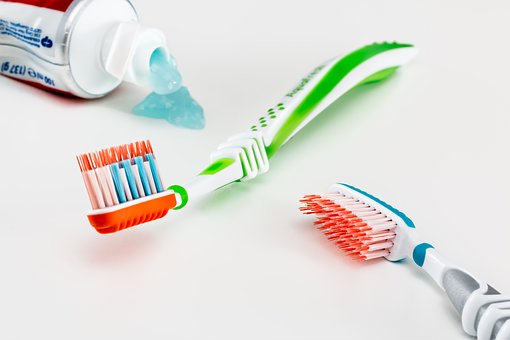
For most people, a trip to the dentist is a dreaded appointment for adults and children alike. Despite comprising some of the most painless procedures, many people cannot overcome the fear of a dentist. Some of the main contributory factors include pain, past experiences, embarrassment, and a feeling of helplessness during the procedure. According to Karl Jobst, Grove, OK., a professional dentist and proprietor of Grand Lake Dental, a dentist’s appointment should not be a traumatizing experience. Although it is necessary to see a dentist often, the following are some important home dental care tips that can help take the fear out of your next trip to the dentist.
Brushing Properly
Brushing your teeth twice a day might be ineffective if not done properly. According to the American Dental Association (ADA), you should place the toothbrush at a 45-degree angle to your gums, and move the brush back and forth in gentle strokes. You should also brush your tongue to remove bacteria and bad odors.
You should also ensure that you brush for sufficient time to ensure that all the teeth are clean. Two minutes of brushing will do the trick. Also, ensure that you clean all the surfaces to remove as much bacteria as possible.
Pick the Right Toothbrush
Proper brushing can only be achieved with the right tool. Pick a soft bristled brush that comfortably fits into your mouth. Replace your toothbrush after three or four months since old bristles will not clean your teeth nearly as well.
Clean Your Brush
A toothbrush is an everyday tool that many people do not pay attention to. Rinse off your toothbrush with clean water after use, and let it stand upright for air drying. Avoid covering your toothbrush before it dries, because moist conditions are conducive for the growth of microorganisms. If you are storing several brushes together, keep them separated to prevent cross-contamination.
Cleaning in Between Teeth
Sometimes, food particles are trapped between your teeth and contribute to bad breath and tooth decay. For this reason, interdental cleaning is essential. Interdental cleaning is done using a toothbrush and flossing at least once per day. Flossing will help you remove particles that brushing cannot.
Use an ADA Approved Product
The ADA recommends that you use a fluoride toothpaste. When buying toothpaste, look for the ADA seal of acceptance to ensure that manufacturing instructions are met and that the amount of fluoride is regulated for adult and child usage. The seal is also found on toothbrushes, oral irrigators, toothbrushes, floss, and other oral hygiene products.
Floss Properly
Flossing helps you remove food particles between your teeth. To avoid plaque buildup, floss every day before going to bed. Start off with around 18 inches of floss and hold it tautly between your fingers. Gently slide the floss against the teeth to avoid snapping or damaging your gum line. As you move from one tooth to another, use clean floss to avoid spreading dirt.
Use a Mouth Wash
Mouthwash will penetrate spaces that neither toothbrushes and floss can reach. It also kills bacteria and gives you fresh breath. Mouthwashes are particularly beneficial when it is not possible to brush.
Avoid Smoking and Tobacco
According to the American Dental Association, smoking cigarettes not only gives you bad breath, but also stains your teeth, dulls your sense of taste, causes gum disease and oral cancer, and slows healing after a dental procedure. It is therefore advisable to avoid smoking if you want to have healthier teeth.
Be Wary of the Foods You Eat
This is perhaps one of the most popular, yet largely ignored piece of advice. Certain foods, especially sugary ones can increase your chances of getting tooth decay. Be on the lookout for candies, citrus, ice, too much coffee, and crunchy foods that get stuck between your teeth. Sodas should also be avoided and if possible, replaced with water for healthier teeth.
Avoid Snacking
Brushing your teeth is ineffective if you continuously have midnight snacks. Snacking, especially after brushing exposes your teeth to more bacteria, since it is easy to forget to do it once more.
Conclusion
Each of these home dental tips will help you keep your teeth healthy. However, visiting a dentist is essential to treat problems that are beyond your capacity. Plaque, gingivitis, and decay require the attention of a specialist such as Karl Jobst, Groove, OK. Thanks to his skills and experience, Dr. Karl Jobst can offer a painless experience.
